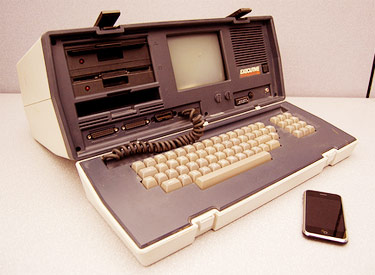
Images courtesy of : petsittingology.com/ & theweek.co.uk
I attend a great many main-stream tech events and every time I leave contemplating this very topic: Why is Hospitality Tech 2 years behind where it should be? On the face of it, the reasons behind this are complex because the industry has actually seen a lot of technological changes over the last decade, but the majority of these changes seem to be catching up with the “trends” rather than riding the wave or leading.
The big question is why?
It is certainly not for a want of trying. We see many fads and phases pass over but up until recently there was a chain of thought of “don’t worry, it will blow over” with respect to new bits of technology as if these changes are inherently a bad thing. The prime example being TripAdvisor, which has riled many hoteliers and restaurateurs for over a decade now. I remember starting out in hospitality (just over a decade ago!) and only hearing negative things about TripAdvisor. I had experience of receiving reviews for Umi London from people obviously just trying to sabotage the brand and leaving me with the helpless feeling of not being able to respond. As TripAdvisor has evolved, hoteliers have gained more power to respond and subsequently that feeling of helplessness has somewhat dissipated. Those early hoteliers who thought “TripAdvisor would not last” were wrong and the same can be said for others who think some current progressions are not here to stay.
I do think there are a lot of ‘traditionalists’ in the hospitality space who feel that new technology, both offline and online, has little to no impact on the customers stay or experiences. There are also a number of trailblazers that have grabbed technology by the horns and made it a part of their product to great success. Perhaps this lies in when the brand was created? Newer brands such as Citizen M have opened in an era of tech and therefore have technology front and centre of the brand where as others, such as Best Western and TUI travel have been slightly left behind. I find it astonishing that the bigger brand consortiums with greater resources have not been able to keep up. Why is this so?
I believe there are a number of reasons but primarily, I believe that it is the arrogance of brands. Through having an established customer base, innovation gets neglected and as such, pleasing customers with new and exciting products take a back seat role. Another reason that I think is noteworthy is how the financial crisis instilled a sense of caution and induced hotels to focus on cost cutting, rather than maintaining a value-based competitive advantage.
Historically the brands have believed that they were bigger than the sum of their parts. Hotel managers relied purely on loyalty programs and big companies using GDS to set up shop, plant flags in the ground and rest on their firm-based brand equity. What has been forgotten, however, is the customer-based brand equity. This is the marginal value of a brand that a guest attributes to a hotel experience over an unbranded hotel. They were happy to use the biggest PMS system in the world, despite the poor reporting and there was no need to change or take risk. After all, ‘No-one can be fired for hiring IBM’.
In regards brand growth, when they were all first perceived, bar none, the thought was not to“franchise” the brand. As the greed for flags in the ground has grown, so has the trend to franchise the brand. The lack of consistency across brands (and their many sub brands) has grown and grown. Whether it is the marketing, websites or just the quality of product, this growth strategy has led to less loyalty to specific brands (Yes, the number of people on the loyalty card programs have grown but how many are actually engaged?) and therefore allowing companies like Priceline Inc. to use their technology to actually get the consumer loyal to their brands (such as Booking.com and others) rather than to the hotel brands themselves. “When you dilute a brand, it is very hard to have a loyal customer.”
Finally, it is well known that technology and marketing are often the first things to go in a financial crisis and as the world has suffered, so have the big brands (and the little guys).Through that time, Priceline and other tech based businesses have invested in their tech and their marketing, letting them pop out the other end in an extremely strong position and well ahead of the trailing pack!
These difficulties have been even more problematic for the smaller and more independent hoteliers where investment in tech has been difficult financially.
Although there are options that offer a great long term saving, cash-flow issues meant they have just not been able to invest in physical tech. The smart hoteliers, have invested in the knowledge of themselves and their staff technology wise, to ensure they try what they can with the budget restrictions.
Trying a few things rather than nothing at all has helped many small hoteliers ride through a very bumpy few years and created a great footing for moving into what we hope are less choppy waters.
In short, a lack of understanding, a regressive view of technology, an occasional arrogance and a traditional point of view is why hospitality is often lagging behind. But with a new generations of hotels & restaurants, with more tech savvy and innovative restaurateurs and hoteliers behind them, there maybe a time that in the near future where we hear that the hospitality sector is ahead of the curve!





